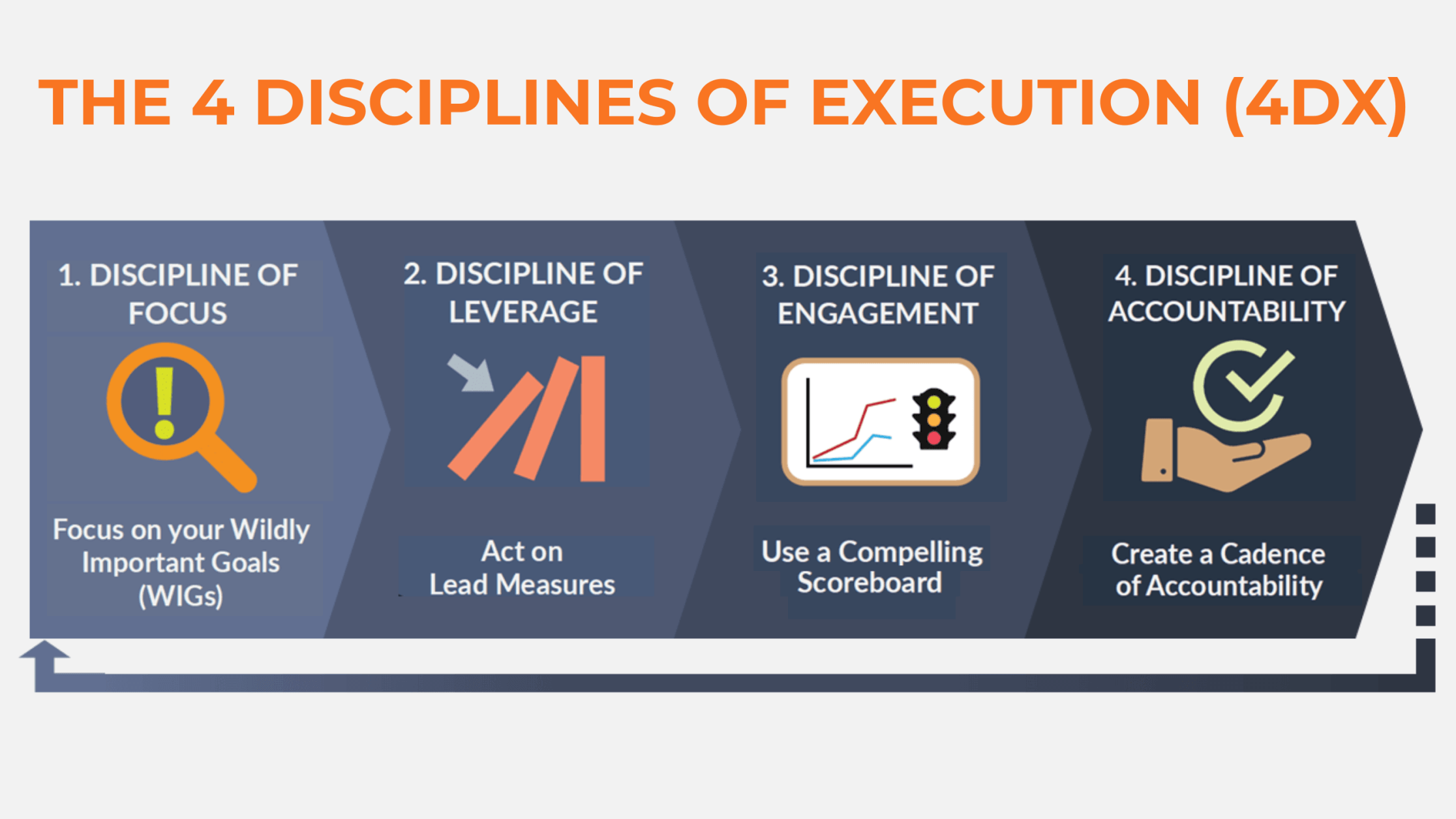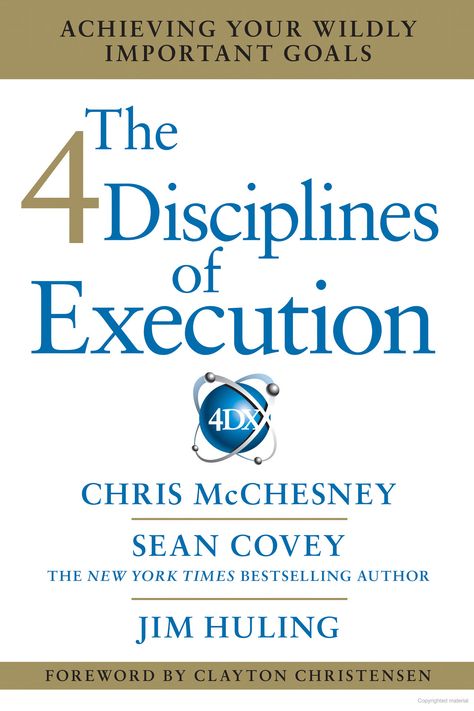“The more you try to do, the less you actually accomplish.”
One-line Summary
A practical guide to turning strategic goals into reality through disciplined execution.

You can download a quick copy of the book here.
Chapter Summaries
- Chapter 1: The 4 Disciplines of Execution – Introduces the foundational disciplines: Focus on the Wildly Important, Act on Lead Measures, Keep a Compelling Scoreboard, and Create a Cadence of Accountability.
- Chapter 2: Focus on the Wildly Important – Emphasizes the need to identify and focus on the most crucial goals amidst competing priorities.
- Chapter 3: Act on Lead Measures – Distinguishes between lag and lead measures and highlights the importance of acting on lead measures that drive the desired results.
- Chapter 4: Keep a Compelling Scoreboard – Discusses the significance of tracking progress in a clear, visible, and engaging way to motivate team members.
- Chapter 5: Create a Cadence of Accountability – Stresses the necessity of regular, frequent accountability sessions to ensure continuous progress and course correction.
- Chapter 6: Installing Discipline 1: Focus on the Wildly Important – Provides practical steps for implementing the first discipline in an organization.
- Chapter 7: Installing Discipline 2: Act on Lead Measures – Guides readers on how to identify and act on the right lead measures.
- Chapter 8: Installing Discipline 3: Keep a Compelling Scoreboard – Details how to design and use scoreboards effectively.
- Chapter 9: Installing Discipline 4: Create a Cadence of Accountability – Offers strategies for establishing and maintaining a cadence of accountability.
- Chapter 10: Installing 4DX with Your Team – A comprehensive guide to implementing all four disciplines in a team setting.
- Chapter 11: Installing 4DX in Your Organization – Explains how to scale the implementation of the disciplines across an entire organization.
Powerful Quotes
“The more you try to do, the less you actually accomplish.”
“Discipline 1 is about focusing on what is wildly important.”
“Lead measures are the measures that drive the lag measures.”
“People play differently when they are keeping score.”
“Accountability is not only for results but for the best possible effort.”
“The enemy of execution is complexity.”
“Without a compelling scoreboard, your team will lose interest.”
“Effective execution begins with clear, achievable goals.”
“Leadership is about making others better as a result of your presence.”
“The real challenge is not strategic thinking, but strategic execution.”
Book Review
“The 4 Disciplines of Execution” by Chris McChesney, Sean Covey, and Jim Huling is an insightful and practical manual for anyone looking to bridge the gap between strategy and execution. The authors outline four key disciplines that, when implemented, can transform the way organizations achieve their most important goals.
The book’s strength lies in its simplicity and clarity. Each discipline is broken down into actionable steps, supported by real-world examples and case studies. The emphasis on lead measures and the importance of a compelling scoreboard provide fresh perspectives on performance tracking and motivation.
Moreover, the book underscores the power of accountability. By establishing a cadence of regular accountability meetings, teams can maintain focus, address obstacles promptly, and celebrate progress, fostering a culture of continuous improvement.
Interesting Books or Lessons from the Book
- The necessity of focusing on a few crucial goals rather than many.
- The differentiation between lead and lag measures.
- The motivational power of a compelling scoreboard.
- The importance of regular accountability sessions.
The Authors
- Chris McChesney is a global practice leader of execution for FranklinCovey.
- Sean Covey is a business executive, author, and speaker, known for his work in leadership and time management.
- Jim Huling is a consultant specializing in organizational transformation and execution.
Critiques of the Book
- The concepts might seem overly simplistic to seasoned executives.
- The implementation process can be time-consuming.
- Some examples may feel repetitive.
- The focus on corporate settings may not fully resonate with smaller businesses or startups.
- The book could delve deeper into handling resistance to change.
- Success stories may not always translate well to different industries.
- The accountability discipline might be challenging in less structured environments.
- The book assumes a certain level of managerial competence and resources.
Related Books for Further Learning
- “Execution: The Discipline of Getting Things Done” by Larry Bossidy and Ram Charan
- “The Goal: A Process of Ongoing Improvement” by Eliyahu M. Goldratt
- “Measure What Matters: OKRs: The Simple Idea that Drives 10x Growth” by John Doerr
- “Good to Great: Why Some Companies Make the Leap… and Others Don’t” by Jim Collins
